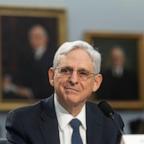Cutting travel can hurt profits
— -- Businesses that drastically cut back on travel may be sacrificing profits for short-term savings, two new studies released Tuesday say.
The reports, commissioned by groups representing the travel industry, sought to show in dollars and cents the effect travel can have on a business' bottom line at a time when companies have slashed travel in response to falling revenue and a public perception that some trips are more excess than necessity.
"We understand there's an economic downturn," says Christopher Pike of IHS Global Insight, an economic forecasting and consulting firm that conducted one of the studies. "It doesn't mean cutting business travel by 30% when an industry's sales are down by 5%. That's where we're saying you're probably going too far."
The IHS report determined that U.S. companies are potentially missing out on $193 billion in profits this year because most are not spending what they should on business trips.
The research, commissioned by the National Business Travel Association and American Express Business Travel, culled data from government and private sources on 15 industries from 1998 through 2007.
Another study, conducted by Oxford Economics, also found a link between travel and corporate profitability. Each dollar spent on travel by a U.S. company can generate an average $3.80 in profit and $12.50 in increased revenue, it says.
"Our candid hope with this study is to move the needle a little bit," says Adam Sacks, managing director of Oxford Economics. He says companies need to realize that it's prudent to see beyond the immediate benefit of cutting out travel to save money.
"There are bottom-line benefits to be realized (on the) immediate horizon," he says. "But over a 12-month period, we've seen cuts in business travel that would generally be (considered) penny-wise and pound-foolish."
The Oxford study, commissioned by the U.S. Travel Association and Destination Marketing Association International, analyzed federal data on 14 industries for 13 years through 2008. Oxford also surveyed several hundred business executives and travelers.




